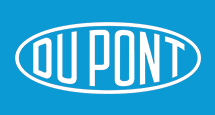Visiongain Publishes Synthetic Biology Market Report 2022-2032
27 July 2022
Visiongain has published a new report entitled Synthetic Biology Market Report 2022-2032: Forecasts by Product Type (Oligonucleotides & Synthetic DNA, Enzymes, Cloning Technology Kits, Synthetic Cells, Synthetic Genes, Synthetic Clones, Chassis Organisms, Xeno-Nucleic Acids, Other), by Technology (Gene Synthesis, Genome Engineering, Sequencing, Bioinformatics, Cloning, Site-Directed Mutagenesis, Measurement & Modelling, Microfluidics, Nanotechnology, Other), by Application (Medical & Pharmaceutical Applications (Drug Discovery and Therapeutics (Cancer Detection & Diagnostics, Other), Artificial Tissue & Tissue Regeneration (Bio-Synthesis, Stem Cell Regulation, Other), Industrial Applications, Biofuel and Renewable Energy, Industrial Enzymes (Textile Industry, Paper Industry, Other), Biomaterials & Green Chemicals, Food & Agriculture, Environmental Applications (Bioremediation, Biosensing), Other) AND Regional and Leading National Market Analysis PLUS Analysis of Leading Companies AND COVID-19 Impact and Recovery Pattern Analysis.
The global synthetic biology market was valued at US$13.8 billion in 2021 and is projected to grow at a CAGR of 25.52% during the forecast period 2022-2032.
Increasing Biofuel Demand Expected to Boost Revenue Growth of Synthetic Biology Market
The rise of the synthetic biology sector will be driven by increasing demand for biofuel as a result of the global energy crisis, depletion of fossil resources, and growing pollution. Recent advancements in synthetic biology are paving the way for the production of fourth-generation biofuels, which will utilise microorganisms/crops that have been deliberately created as feedstock. Increased worldwide per capita energy consumption due to rapid industrialization, combined with an increase in global population, is predicted to drive synthetic biology applications in the energy sector.
How has COVID-19 Pandemic Impacted the Global Synthetic Biology Market?
During the COVID-19 pandemic, the market saw a slight slowdown in growth due to reduced manufacturing, which was followed by a lockdown and a labour scarcity. Prices were higher than usual. The synthetic biology market, on the other hand, has a positive impact on the market due to rising demand for vaccine, therapeutic, and diagnostic innovation. This has a substantial impact on the income of the market under consideration. The continuing research into COVID vaccines and medications propels market growth. Pharmaceutical and biopharmaceutical organizations, as well as synthetic biology industry participants, have stepped up to support global research efforts by developing synthetic biology for the production of coronavirus test kits, treatments, and immunizations. Synthetic biology is mentioned in a European Parliament report as one of the emerging technologies. It is capable of combating the COVID-19 pandemic. The National Institute of Health in the United States has also proposed synthetic biology as a method for accelerating vaccine development. Synthetic biology technologies have the potential to change the research and manufacturing of vaccines, medications, and diagnostics by utilising engineering approaches based on a variety of data. Vaccine technologies based on DNA and mRNA, for example, can simplify vaccine development and production. These vaccines are composed of synthetic nucleotide strands that enable proteins to grow in the individual’s own cells, thereby eliciting an immune response. Vaccination candidates can be created fast as a result of the availability of viral sequencing data. As a result, businesses such as Moderna and Inovio have been able to move fast into clinical development. These factors have positively influenced the synthetic biology market.
How Will This Report Benefit you?
Visiongain’s 745-page report provides 355 tables and 710 charts/graphs. Our new study is suitable for anyone requiring commercial, in-depth analyses for the global synthetic biology market, along with detailed segment analysis in the market. Our new study will help you evaluate the overall global and regional market for Synthetic Biology. Get financial analysis of the overall market and different segments including type, process, upstream, downstream, and company size and capture higher market share. We believe that there are strong opportunities in this fast-growing synthetic biology market. See how to use the existing and upcoming opportunities in this market to gain revenue benefits in the near future. Moreover, the report will help you to improve your strategic decision-making, allowing you to frame growth strategies, reinforce the analysis of other market players, and maximise the productivity of the company.
What are the Current Market Drivers?
Rising Demand for Enzymes from Numerous End-Use Sectors
Enzymes have several applications in research and biotechnology, and they are employed in a wide range of end-use industries such as food and beverage, industrial, pharmaceutical, and so on. While performing quick chemical processes, enzymes such as dismutase, anhydrase, protease, elastase, catalase, and tyrosinase are extensively used in cell biology. Furthermore, growing paper usage in the packaging industry due to multiple environmental concerns, paired with its ease of use and lightweight, is expected to drive product demand in paper and pulp manufacturing. Rising pharmaceutical demand, significant research efforts, and strong financing initiatives are expected to drive demand for synthetic biology in the future years.
Increase in Research Activities for Synthetic Materials and Products
Shifting production trends toward materials derived from natural plants such as essential oils, rubber, culinary flavors, and fragrances, will aid in the growth of the biology research & development firms. Furthermore, increasing research activities for these products using synthetic biology technologies and engineering tools in order to build, generate, redesign, or transform live beings, genetic materials, and biological systems. In turn, increasing research activities are expected boost the business growth opportunities for this market.
Where are the Market Opportunities?
Surging demand for synthetic biology due increasing drug discovery and therapy
The constant application of synthetic biology in the disciplines of drug discovery, pharmaceuticals, and therapies is advancing biomedicine progress by allowing for improved manufacturing capacity of various treatments while reducing waste levels. This is an important factor that will boost prospects for future industry growth in the global synthetic biology market. Furthermore, various industries, including healthcare, food and beverage, and others, are increasingly embracing synthetic biology for a wide range of applications aimed at improving goods and processes. This surge in demand is also predicted to drive revenue growth in the worldwide synthetic biology industry over the next ten years.
Shifting Adoption Trends Toward Alternative Fuels Expected to Fuel Market Growth
Biofuels are becoming more essential as fuel usage grows and rising concerns towards energy security are increasing. Nearly more than 130 billion tonnes of biomass are produced globally each year. Currently, biofuels are produced from food commodities such as corn, vegetable oils, and sugarcane. As a result, synthetic biology techniques are being increasingly commonly applied in the creation of renewable energy.
Competitive Landscape
The major players operating in the synthetic biology market are Thermo Fisher Scientific Inc., Agilent Technologies Inc., Merck KGaA, Genscript Biotech Corporation, Precigen Inc., Synthetic Genomics (Viridos), Ginkgo Bioworks, New England Biolabs, Danaher Corporation, Twist Bioscience Corp., Codexis, Inc., Amyris Inc., GRO Biosciences, Synlogic and ElevateBio. These major players operating in this market have adopted various strategies comprising M&A, investment in R&D, collaborations, partnerships, regional business expansion, and new product launch.
Recent Developments
• On April 2022, Thermo Fisher Scientific has introduced the new Gibco CTS TrueCut Cas9 Protein, which is made in accordance with GMP standards. TrueCut Cas9 proteins are produced in accordance with US Pharmacopeia standards, including traceability documentation, aseptic manufacturing, and safety testing.
• In January 2021, Novozymes introduced Frontia GlutenEx. It would assist wheat processors in increasing gluten protein recovery while reducing energy usage..
• In January 2021, Merck acquired AmpTec (Germany). As a result of this acquisition, the company expanded its product portfolio by creating and manufacturing mRNA for use in immunizations, treatments, and diagnostics.
• In February 2021, Merck collaborated with BioNTech (Germany) to supply lipids for the Pfizer-BioNTech COVID-19 Vaccine (BNT162b2).
Notes for Editors
If you are interested in a more detailed overview of this report, please send an e-mail to contactus@visiongain.com or call +44 (0) 207 336 6100.
About Visiongain
Visiongain is one of the fastest-growing and most innovative independent media companies in Europe. Based in London, UK, Visiongain produces a host of business-to-business reports focusing on the automotive, aviation, chemicals, cyber, defence, energy, food & drink, materials, packaging, pharmaceutical and utilities sectors.
Visiongain publishes reports produced by analysts who are qualified experts in their field. Visiongain has firmly established itself as the first port of call for the business professional who needs independent, high-quality, original material to rely and depend on.
















